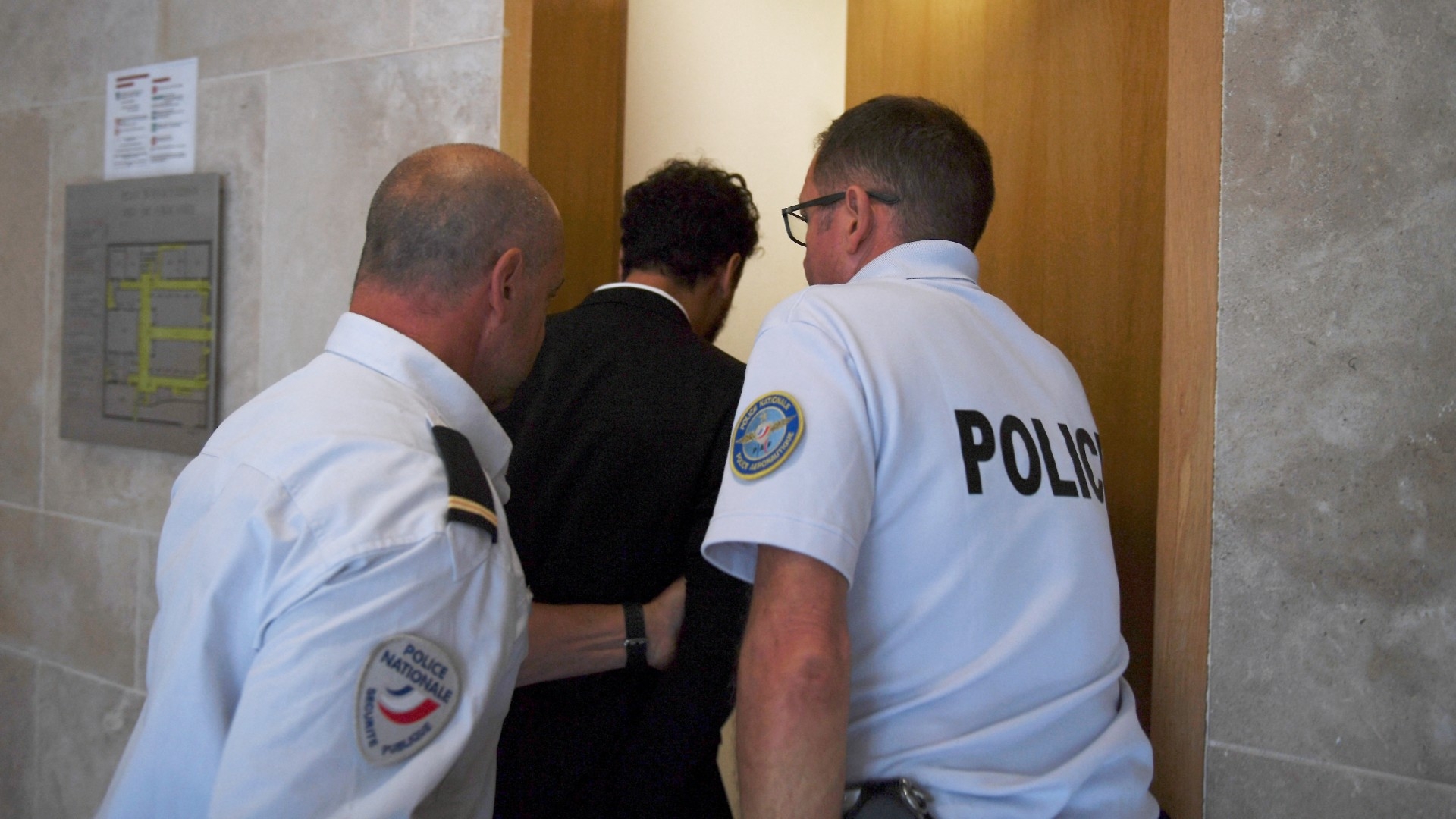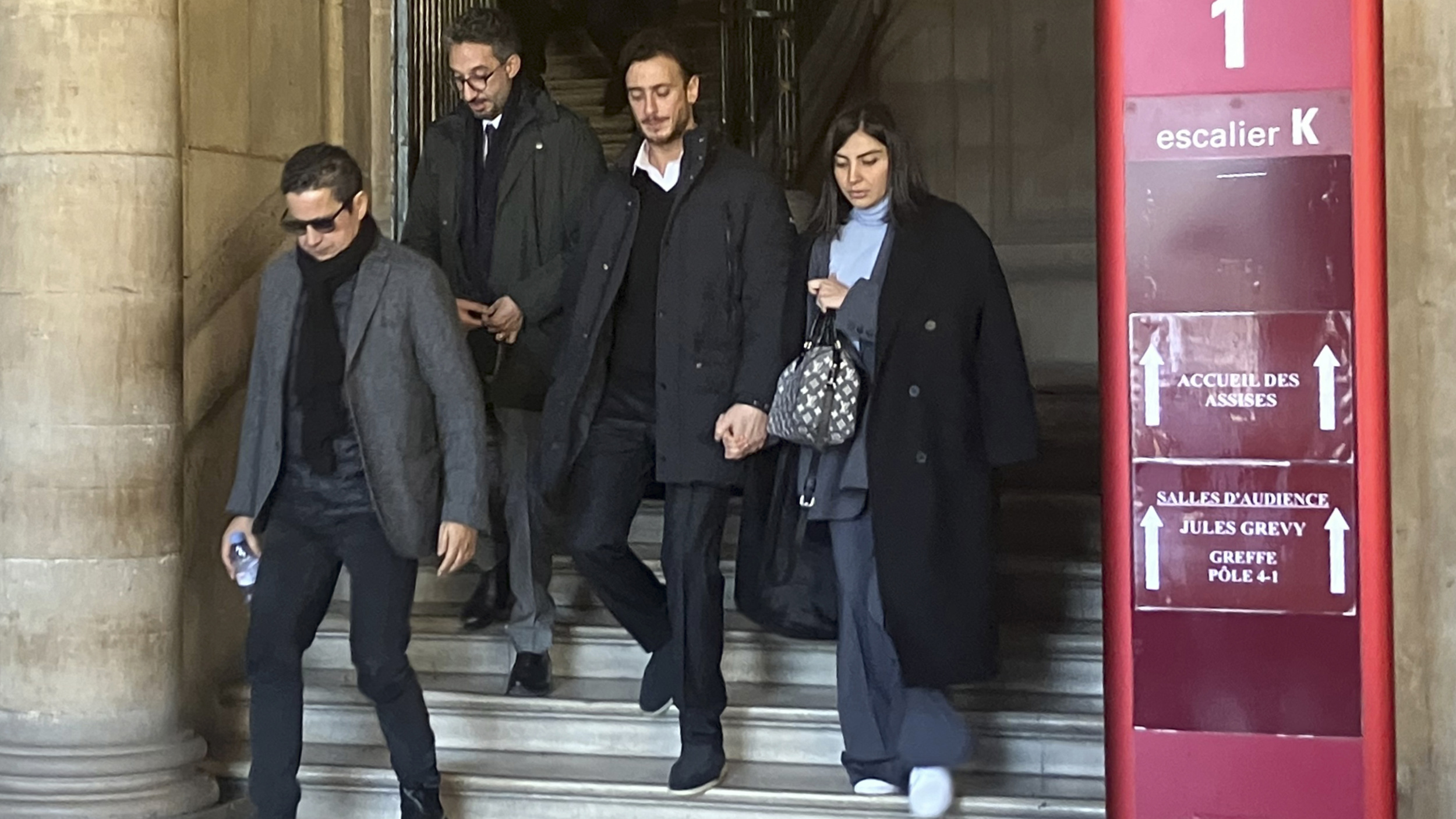Saad Lamjarred rape conviction a victory and new beginning for Moroccan feminists

The conviction of Moroccan singer Saad Lamjarred for rape by a French court has brought conversations about Morocco’s ongoing struggles with gender-related violence and sexual abuse to the fore.
Lamjarred, a household name throughout the Arab world, was sentenced last week to six years in prison for the rape of a French woman in 2016.
“My first reaction was, ‘It’s about time,’” said Sara Bakkali, an architect in Rabat. “As a Moroccan living in a society where rape culture is normalised and where a lot of cases go unpunished, I think Lamjarred was a good example of a person who escaped conviction for years because of fame and connections.”
On Friday, another world-renowned Moroccan star, Paris Saint-Germain footballer Achraf Hakimi, was charged with rape by French prosecutors.
'I think this is a win for Moroccan women'
- Marwa Rachouk, Moroccan student
According to a report by Le Parisien on 28 February, an unnamed woman told French police that Hakimi, the star of Morocco’s 2022 World Cup run, raped her at his home in France. Hakimi’s lawyer denounced the "attempted racketeering" of her client, who "strongly denies the charges" brought against him.
Stay informed with MEE's newsletters
Sign up to get the latest alerts, insights and analysis, starting with Turkey Unpacked
In Morocco and the diaspora, meanwhile, feminists are reflecting on the implications of Lamjarred’s conviction.
“I think this is a win for Moroccan women. But, at the same time, I think it’s sad that such cases only get the attention they deserve when the victim is privileged, white or western,” Marwa Rachouk, a Moroccan student in the French city of Montpellier, told Middle East Eye.
“On another note, it’s devastating to see the amount of support Lamjarred is receiving - from fellow artists or from women themselves.”
Fame and rape culture
In the days after Lamjarred’s conviction, he has continued to receive support from colleagues in the music industry and beyond. He has denied all rape allegations.
In an Instagram post, which seems to now have been deleted, the Moroccan singer Hatim Ammor voiced his “grief” for his “brother Saad”. News agencies reported that Lamjarred’s other supporters included the actor Mariam Hussein, the singer Dounia Batma, and celebrities as far afield as Lebanon and Syria.
Ammor, Batma and other Moroccan artists also backed Lamjarred in 2016, when the singer faced accusations of rape in France and the United States. A French-Moroccan woman later alleged that Lamjarred had raped her in Casablanca in 2015.
“People and celebrities who are defending Lamjarred despite the conviction are contributing to violence against women, and many of them have huge platforms and big audiences,” said Yasmina Benslimane, a UN Women-trained Moroccan human rights activist and the founder of Politics4Her, a vehicle for youth and women’s empowerment.
“They are contributing to rape culture and are promoting victim blaming. It’s absolutely despicable and disgusting. I am horrified.”
Some celebrities have echoed these points.
In the aftermath of Lamjarred’s conviction, Moroccan actor Loubna Abidar, who herself suffered physical and verbal abuse in Morocco after playing a sex worker in an acclaimed film, wrote an Instagram post denouncing rape culture and victim blaming in the kingdom as “a plague” and “poison”.
Even before last week’s ruling, a multinational boycott of Lamjarred notched some key successes, among them the cancellation of a concert in Egypt in 2020.
Still, the singer retained notable allies in the halls of power. King Mohammed VI, who gave Lamjarred one of Morocco’s highest national honours in 2015, helped the singer cover the cost of hiring the controversial lawyer Eric Dupond-Moretti, known in French legal circles as The Acquitter.
Problematic laws
The defence of Lamjarred hints at Morocco’s wider struggles to come to terms with gender-based violence.
A 2020 report by UN Women found that 57 percent of Moroccan women “had experienced at least one act of violence in the previous 12 months”. However, only 10.5 percent of victims reported the assault to authorities.
Article 490, a Moroccan law condemned by feminists and human rights groups, declares that “every sexual relationship between a man and a woman outside marriage is a crime of corruption and is punishable by imprisonment of between a month and a year”.
Because the law fails to distinguish between a consenting sexual partner and a survivor of sexual assault, Moroccan women often fear that they will face prosecution for premarital sex if they go to the police with a rape claim.
“I’ve seen many women who didn’t want to report because they were afraid of the judgment and of being sentenced too,” said Rim Akrache, a psychologist in Casablanca who has worked with victims of sexual assault. She added that some teenagers’ cases were also not raised because their parents were reluctant to report them to police.
Last month, parliament released the results of a survey indicating that most Moroccans advocated addressing domestic violence within the family.
Article 490 also played a role in the notorious case of the Moroccan journalist Hajar Raissouni.
In September 2019, a Moroccan court sentenced Raissouni to a year in prison for “having an illegal abortion and sexual relations outside marriage”, in a move interpreted by human rights organisations as a response to her critical reporting on the government.
The Raissouni episode led a pair of prominent feminists, the French-Moroccan author Leïla Slimani and the Casablanca-based filmmaker Sonia Terrab, to organise the “Moroccan Outlaws” campaign, which saw hundreds of Moroccan women speak out against Article 490.
While Mohammed VI pardoned Raissouni two weeks after her sentencing, Article 490 remains on the books.
“This article is a barrier to Moroccan women when they want to go to the police and prosecute someone,” Terrab told MEE. “That’s one of our biggest arguments to abolish this article, that it forbids women from having justice.”
Inching towards reform
Moroccan MPs have taken incremental steps towards addressing gender-related violence, though feminists call for a complete overhaul of the legal system.
In 2014, parliament amended Article 475, a law allowing rapists to avoid prosecution if they married their victims. That change followed the suicide in 2012 of Amina Filali, a 16-year-old forced into marriage under the law.
“There are a lot of girls I used to work with who, after getting raped, started thinking that everything could be done to them because the most important thing to them was virginity, not how they felt and what happened to them,” said Rita Elkabbach, a psychologist in Rabat. “If you lose your virginity, you lose your honour.”
In 2018, parliament then approved a much-vaunted law toughening punishments for sexual harassment and gender-related violence.
Nonetheless, human rights groups cited “gaps” in the legislation, with Human Rights Watch calling on Morocco “to revise the violence against women law to include a definition of domestic violence, explicitly criminalise marital rape, and make protection orders available without requiring survivors to first file for criminal prosecution”.
'Morocco does not do enough to protect women from sexual violence'
- Yasmina Benslimane, human rights activist
“We don’t have the notion of consent, that I can say no during the act and everything stops,” Elkabbach told MEE.
Women say true reform will remain impossible until Morocco abolishes Article 490.
“Even if Morocco enacts a lot of new laws against rape, sexual harassment and violence, if we still have this article, nothing can be done,” said Terrab.
“Morocco does not do enough to protect women from sexual violence,” said Benslimane.
“It’s baffling that it’s not changing with all the social issues that we’re facing, with all the cases of gender-based violence that we’re having. We are having so many issues, and it’s not taken seriously because our legislative body is not protecting women from sexual violence.”
Amid feminists’ push for change, sexual assault seems likely to stay at the forefront of Morocco’s headlines in the coming days.
Lamjarred has announced that he is appealing against his conviction, and he will face another trial in France on charges that he raped another woman there in 2018.
“In Morocco, we have a mentality that tends to make rape sound like it’s not a big deal,” Terrab told MEE. “The celebrities and people defending Lamjarred, it’s just the way our society is built.”
This article is available in French on Middle East Eye French edition.
Middle East Eye delivers independent and unrivalled coverage and analysis of the Middle East, North Africa and beyond. To learn more about republishing this content and the associated fees, please fill out this form. More about MEE can be found here.





